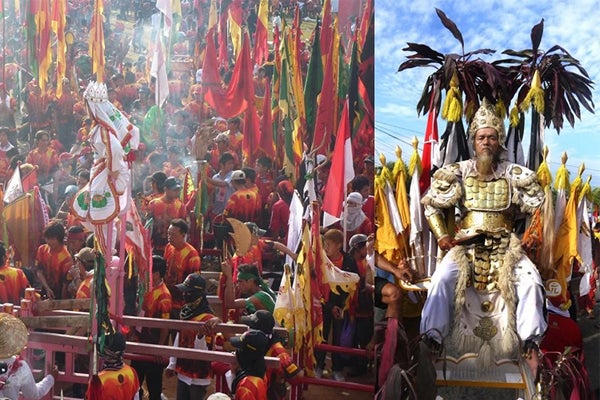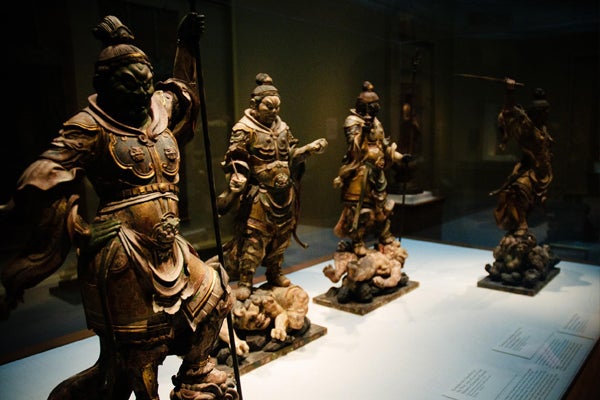The Pandemic And Its Effect On The Performance Of Hajj Pilgrimage In Malaysia
contributed by Siti Zubaidah Ismail, 12 January 2021
One of the biggest milestones to be achieved in a Muslim life is the performance of hajj in Mecca, which is the fifth pillar of Islam. It is no surprise then, that it would be a news of a lifetime for Saroni Raop, 73, when he received a letter from the Tabung Haji earlier this year in February 2020. This letter was a ticket to perform the spiritual journey of a lifetime; to spend time and bond with Almighty God in the holy place of Mecca. The fact that he and his wife were selected to be amongst the 31,600 Malaysians eligible to perform hajj was truly a blessing. This figure is 0.1% of the country’s population, based on the quota set by the Organisation of Islamic Cooperation countries (OIC).
It took Wak Roni, as he is fondly known, many years to ensure his savings with Tabung Haji is enough to sustain themselves for the duration, typically 42 days, of their stay in Mecca and Madinah. Tabung Haji (TH) is the Malaysian government body tasked with overseeing the affairs of hajj management in the country under the purview of the Prime Minister’s Department. The cost set by TH for first-time pilgrims is RM9980.00 (SD3330). As a villager who leads a simple life depending on hard labour in the kampung, any extra financial contribution would help. And he finally got to deposit another RM3000 (SD1000) he received from his children, friends, neighbours and well-wishers. He also underwent the preliminary hajj course at the nearby mosque. However, with coronavirus spreading all over the world and its designation as a pandemic announced by the World Health Organisation (WHO), all preparations were put to a halt, especially once Tabung Haji made the announcement that all matters pertaining to performance of hajj would have to be postponed.
This followed the Saudi Government’s decision to prevent foreigners from entering the country. Announcing this news, Saudi Minister of Hajj and Umrah, Muhammed Saleh Benten, was quoted saying: “Saudi Arabia is fully ready to serve pilgrims and umrah seekers. But under the current circumstances, as we are talking about the global pandemic, the kingdom is keen to protect the health of Muslims and citizens and so we have asked our brother Muslims in all countries to wait before doing [Hajj] contracts until the situation is clear.”
As a sign of solidarity, Zulkifli al Bakri, Malaysian Minister in-charge of Religion at the Prime Minister’s Department, sent a letter to the Saudi Government expressing Malaysia’s understanding that the decision was done in the public interest to prioritise safety, security, and health. In an effort to explain this to all Malaysians, an e-book titled Penangguhan Ibadah Haji 1441H Suatu Pencerahan (The Postponement of Hajj 1441H: An Explanation) was issued.
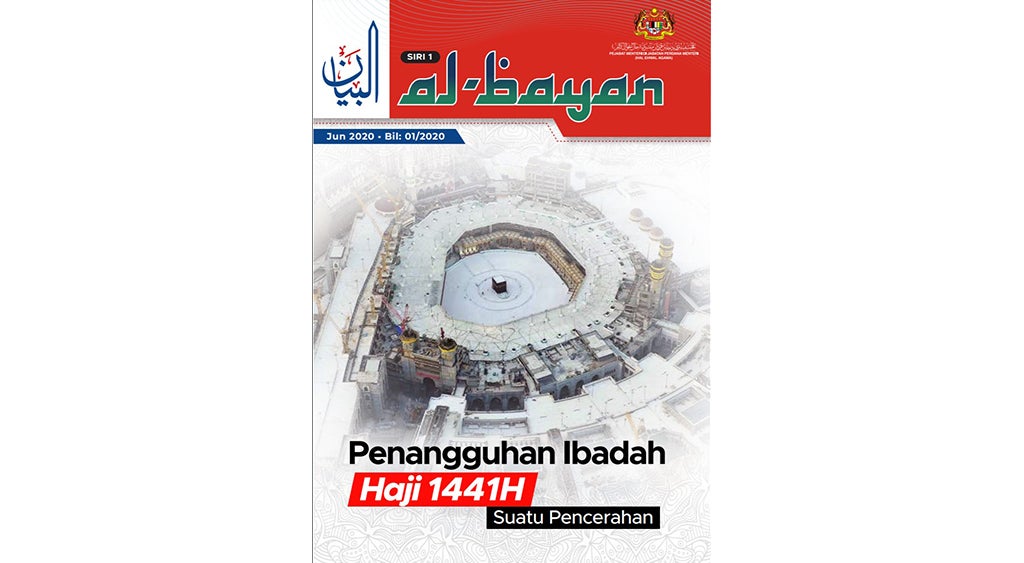
Figure 1. Cover of the e-book Penangguhan Ibadah Haji 1441H Suatu Pencerahan
The restrictions outlined by the Saudi Government only allowed 1,000 locals and foreigners residing in Saudi Arabia to perform hajj this year. Muslims from other countries were not allowed to make the annual pilgrimage.
As a result of this cancellation, it was reported that Saudi suffered a loss of 12 billion US dollars in revenue compared to the typical hajj season every year. As for the Malaysian devotees who had made plans to travel for hajj, TH has also ensured that all costs taken from the depositors’ account will be reimbursed to a Hajj saving account under TH in full, and the amount will be calculated and made eligible for profit and dividend for the current year. Those like Wak Roni and his wife will be given priority to perform hajj in 2021.
Travel restrictions on such a global scale were beyond the imagination until recently. Normally, there would be around 2.5 million Muslim pilgrims in Mecca and Madinah throughout the hajj season. International pilgrims would stay between two weeks to 42 days to complete the performance of hajj, umrah, as well as pay a visit to the Prophet’s Mosque (Al-Masjid an-Nabawi) in Madinah.
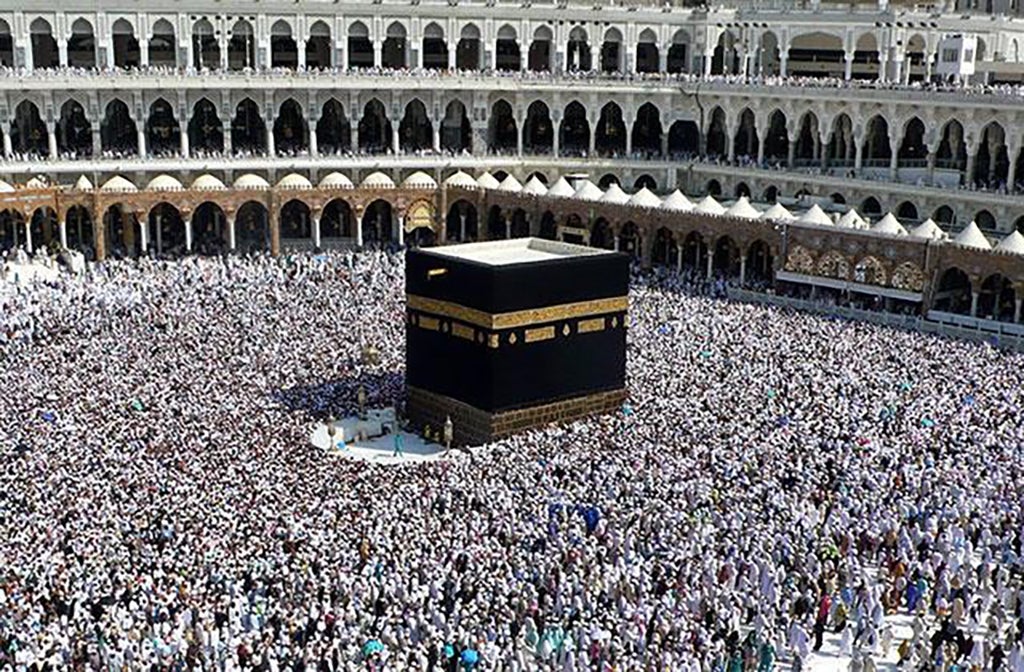
Figure 2. Before 2020. Muslim pilgrims circumambulating (tawaf) the Kaabah as part of the hajj ritual. (Photo: Mahmud Hams/AFP/Getty Images)
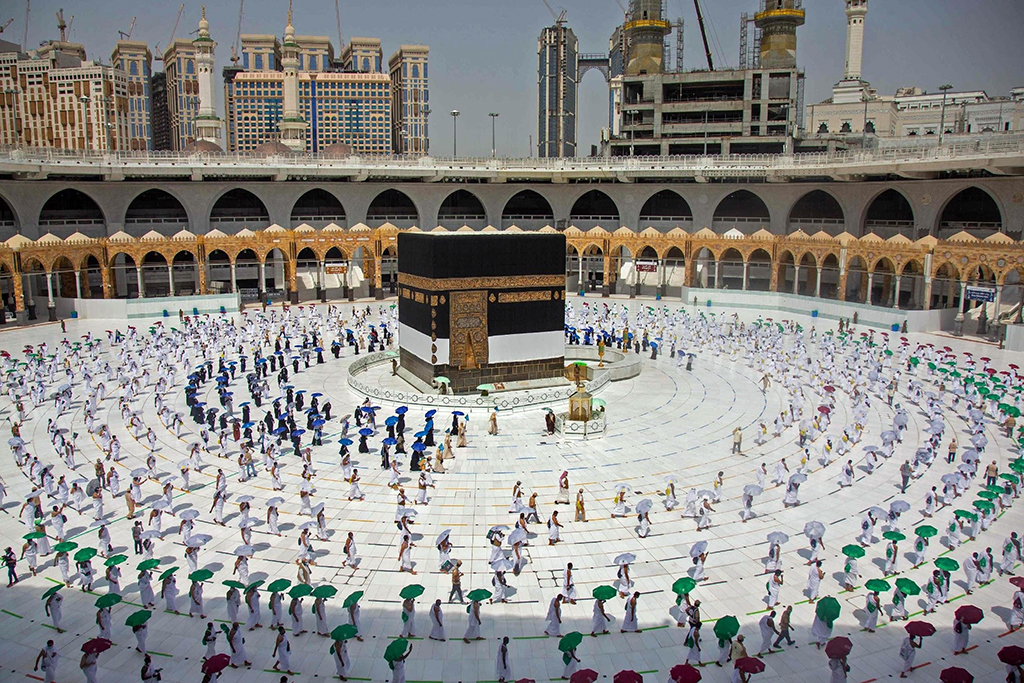
Figure 3. Hajj in 2020. Just 1000 pilgrims were allowed. (Photo Getty Images/AFP)
After the end of the hajj season, Saudi looked forward to receiving international visitors for umrah beginning October 2020. Umrah is a shorter version of hajj, usually ten days, that can be done throughout the year after the hajj season. In 2019, Saudi received a total of 19 million visitors coming for umrah throughout the year.
This year however, strict health procedures had to be followed in order to avoid an increase in COVID-19 cases, including to limit the number of visitors. Many new apps have been developed so far to assist modern-day pilgrims. Among the apps launched recently by the Ministry of Haj and Umrah is I’tamarna. This app aims to facilitate and enforce health standards and safety protocols for pilgrims during the pandemic period. Not only will it assist in booking transport and accommodation, it will also facilitate the sequencing so that the number of pilgrims in any one location can be limited. Chief Planning and Strategy Officer of the Ministry, Dr Amr al-Maddah reportedly said that this will prevent the overcrowding of the holy site and limit the spread of the virus amongst visiting pilgrims. In September, Arab News announced that the umrah service will resume in four phases. In the first one, only 30% or roughly 6,000 pilgrims per day will be allowed. In the second phase, the capacity will be increased to 75% - numbers estimated around 15,000 pilgrims and 40,000 worshippers will be allowed starting from October 18th. Only at the third phase would international visitors be allowed to perform umrah. This amounts to 20,000 pilgrims and 60,000 worshippers per day. The fourth stage is yet to come where the Grand Mosque will be opened to its maximum capacity, when the risk of COVID-19 infection will be over. It was reported that a week after the third phase was opened, nearly two million users have registered to perform umrah with the apps introduced by the Government. International pilgrimage was allowed to come in since November, and the highest standard of health protocol was put in place to ensure the safety of people coming from abroad: from receiving at the airport to the handling of the umrah processes. The Grand Mosque will be washed ten times a day before and after the procession, lavatories will be cleaned six times a day, and the carpets, as well as the zam zam foundation area will all be sterilized frequently.
To the best of his ability to understand the matter, Wak Roni is now receptive to the news and believes that there is a blessing in disguise for this episode in his life. He and his wife now fervently hope that they will live longer and consequently be able to start the spiritual journey to Mecca in 2021 before their health fails them.
Disclaimer: The views and opinions expressed in this article are those of the authors and do not necessarily reflect the position of the blog editorial team or the Asia Research Institute.
South Asia | Southeast Asia | East Asia | Other Places | Hinduism | Buddhism | Islam | Christianity | Other Religions
Dr Siti Zubaidah Ismail is Associate Professor at Shariah and Law Department, Academy of Islamic Studies, University of Malaya. Her interest is on Islam as a way of life while pursuing academic endeavor on the implementation of Islamic law, Islamic legal history and the interaction between Islamic law and society. Apart from that, she is in her own words, “a life-long learner, living on her own terms and conditions”.
Other Interesting Topics
Hosting a God’s Birthday Party during Covid-19
Singkawang, West Kalimantan is a small city with a majority Chinese Indonesian population in Borneo. It is a center of Chinese Religion and called the “City of a Thousand Temples''. My ongoing research confirms that there are over 250 temples, including large denominations of international Buddhist as well as smaller temples venerating specific gods
Walking a Fine Line: Churches response to COVID-19 in rural Indiana
Churches in the United States (US) have made global headlines for refusing to close their doors during state-wide mandated shutdowns and for contributing to coronavirus outbreaks, particularly when failing to follow protocols from the Centers for Disease Control and Prevention (CDC)
Protection without punishment: Turning to Buddhist gods during Covid-19
For political leaders today, a pandemic means never having to say you’re sorry. This has not always been the case. Once upon a time, in a different era, rulers publicly proclaimed their shortcomings, taking moral responsibility for a host of disasters, from droughts to epidemics, thought to be caused by the lack of virtue in a sovereign


